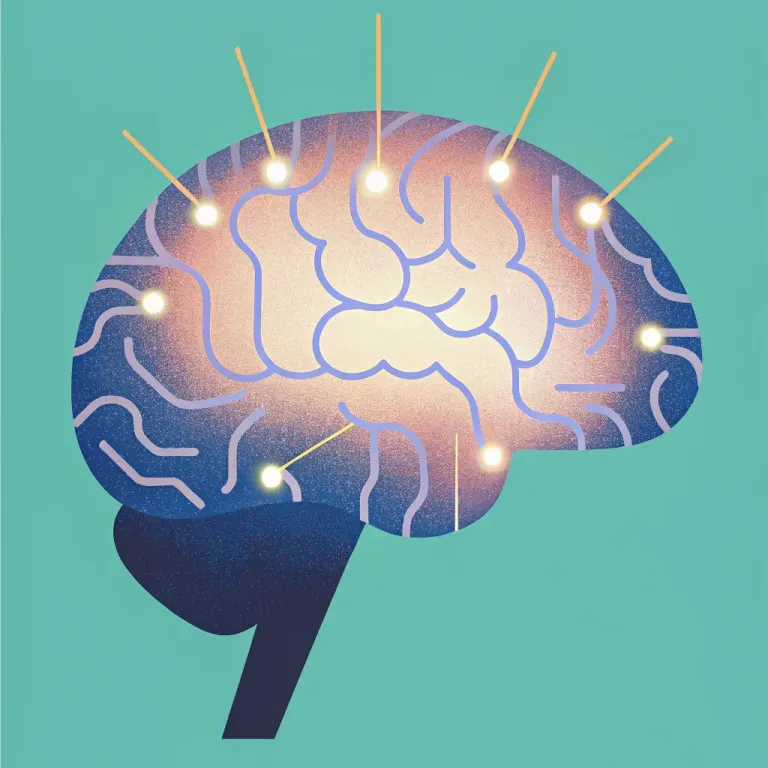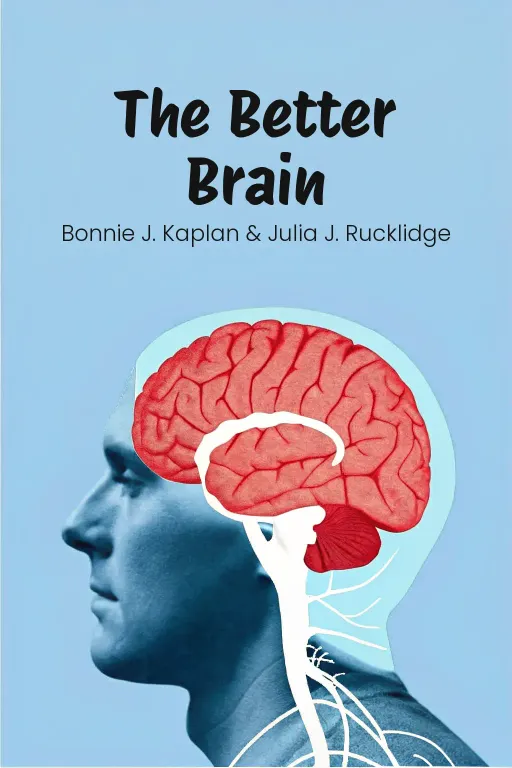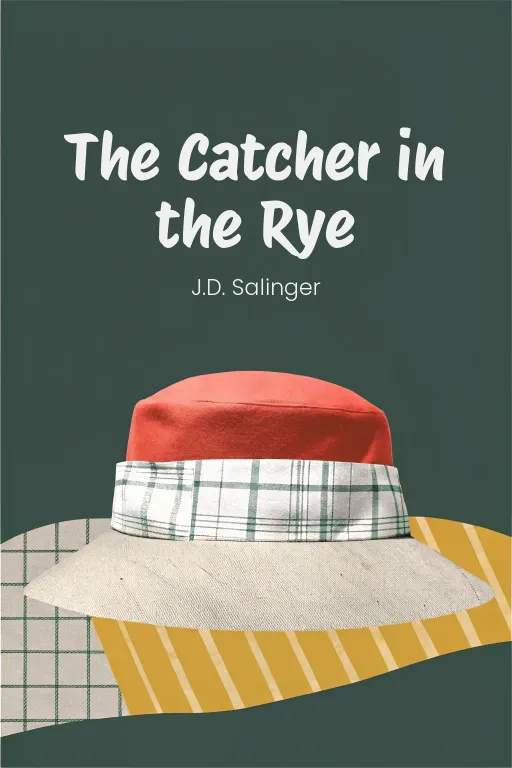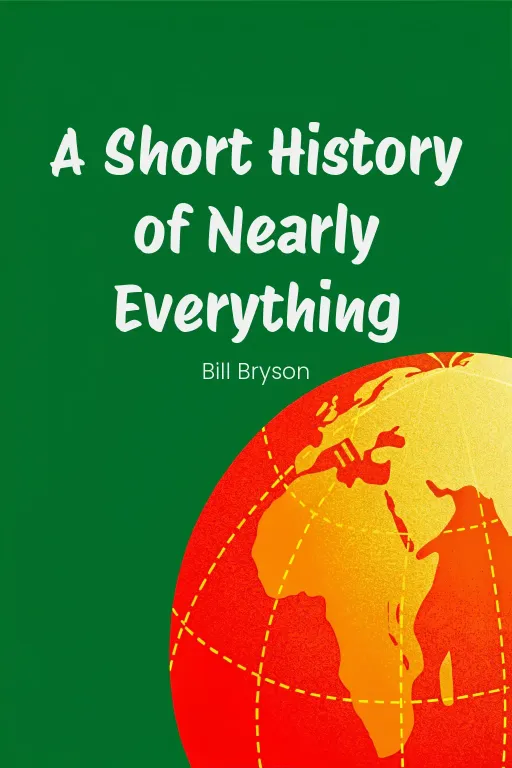
Eat Your Way to a Better Brain
Podcast by The Mindful Minute with Autumn and Rachel
Overcome Anxiety, Combat Depression, and Reduce ADHD and Stress with Nutrition
Introduction
Part 1
Autumn: Hey everyone, welcome to the podcast! Let's kick things off with a simple question: What if the secret to feeling better mentally isn't just about therapy sessions or medication, but actually what you're eating every day? Rachel: Hold on, are you suggesting my late-night pizza slices aren’t exactly a mental health superfood? I'm so surprised. Autumn: <Laughs> Well, that’s kind of the idea behind The Better Brain by Bonnie J. Kaplan and Julia J. Rucklidge. The book presents some really interesting research. Rachel: Right, so we're talking, ditch the pills and grab some sweet potatoes? I'm kidding... mostly. But in all seriousness, what exactly are Kaplan and Rucklidge saying? Autumn: Their core argument is that mental health shouldn't rely solely on medication, that nutrients play a crucial role in our emotional state. For example, there's solid evidence that nutrient deficiencies can “really” contribute to anxiety, ADHD, and even depression. Rachel: Gotcha. My brain’s basically staging a vegetable intervention. Autumn: Precisely! They “really” delve into how whole, unprocessed foods are vital for brain health. Plus, they question how modern agricultural methods strip our food of essential nutrients. Rachel: Okay, I’m sure this isn't just about eating more salads. What else are we discussing today? Autumn: Oh no, it’s much bigger than a nutrition seminar. We're going to break it down into four main questions: First, why are existing mental health treatments often not enough? Then, we’ll look at the scientific evidence linking diet to brain function. After that, we'll talk practical steps - small but impactful changes we can make through food to improve our mental wellbeing. And lastly, the big picture: how do we weave this approach into our healthcare systems which is very important, do you think so? Rachel: So, we're going from critiquing the medical establishment to suggesting that, a grocery list can boost your serotonin levels? Sounds good. Autumn: Definitely, and I think you’ll find it’s food for thought—literally! Let's jump in!
Nutrition and Mental Health
Part 2
Autumn: Okay, Rachel, so kicking us off, that first question—why are current mental health treatments falling short? I mean, if medication works for some, why not just stick with it, right? Rachel: Yeah, exactly, Autumn. It seems like the obvious solution, doesn't it? Autumn: Right, so, medications, like antidepressants or stimulants, definitely have their place, but often they're designed to manage symptoms rather than tackle the root causes of mental health challenges. Many of these issues—like anxiety or ADHD—are really tied to imbalances in brain chemistry. These imbalances can stem from something as fundamental as nutrient deficiencies. Rachel: So, it's like, we're patching up a leaky roof without actually fixing the leak itself? We're just dealing with the symptoms while the real problem persists. Autumn: Exactly. Think about magnesium, for example—a critical mineral that's involved in over 300 biochemical reactions in the body, including the ones regulating mood and stress. Now, studies have linked magnesium deficiencies to symptoms like anxiety and irritability. Yet, these deficiencies often go unnoticed because our diagnostic systems aren't really geared to recognize them. Instead, we end up medicating for the symptoms, while the underlying issue just remains. Rachel: Interesting. So what keeps us stuck in this medication-first approach? Is it just easier for healthcare systems to dish out prescriptions than to really delve into someone's diet? Autumn: Well, that's part of it, sure, but there's also a cultural conditioning. We've been taught to see mental health as separate from physical health—it's all in the brain, right? But the brain is an organ, and like every other organ, it needs specific nutrients to function optimally. Unfortunately, conversations about lifestyle factors like diet and exercise often take a backseat during mental health consultations. Rachel: Right, it's more like, "How are you feeling? Here's a pill," rather than, "So, what did you have for breakfast?" Autumn: Exactly! And that really sidesteps an enormous opportunity. What we eat profoundly affects our brain's ability to synthesize neurotransmitters like serotonin and dopamine, you know, the chemicals that regulate mood. If those pathways are undernourished because we're eating processed, nutrient-poor foods, no amount of medication can fully compensate for that shortfall. Rachel: Right, make sense. So, let's get to the real core of the argument here. Tell me about the actual evidence linking diet and mental health. What makes this more than just another trendy wellness claim? Autumn: Okay, let’s start with a big one: the Mediterranean diet. Now, a 2017 study published in Psychological Medicine looked at people with depression who adopted a Mediterranean-style diet, which focuses on whole foods like vegetables, fruits, nuts, fish, and whole grains. Participants who followed it closely saw significant reductions in depressive symptoms compared to those sticking to standard Western eating habits. Rachel: Wait just a second, by "significant," you mean this isn't anecdotal evidence, "I ate some home-made hummus and now I feel great?" Autumn: <Laughs> not anecdotal at all, Rachel! These participants showed measurable improvements in their emotional well-being. One reason this diet works so well is its emphasis on nutrient density. You've got omega-3 fatty acids from fish that support brain cell communication, antioxidants from fruits and veggies that combat inflammation in the brain, and B vitamins that facilitate neurotransmitter production. Rachel: So, in superhero terms, the Mediterranean diet is basically the Avengers of brain health? Autumn: That's a great way to put it! And it doesn't stop there. A similar case can be made for children with ADHD. When their diets were cleaned up—removing processed foods, artificial additives, and refined sugars—parents and teachers observed major improvements in their focus and behavior. It's almost as if their brains were finally getting the fuel they had been starved of. Rachel: Okay, hold on. So, if this is all so effective, why aren't schools just serving salmon and kale chips instead of chicken nuggets and fries? I mean, where's the disconnect? Autumn: Well, it's a systemic issue, Rachel. Modern diets are shaped by industrial agriculture and convenience-first food systems, both of which prioritize shelf-stability and profit over nutrition. For instance, processed foods are stripped of key nutrients during manufacturing, and the long-term consequences show up as deficiencies that really erode mental and physical resilience. Rachel: Yeah, and don't even get me started on glyphosate! The fact that a bowl of cereal might come with a side of herbicide is... well unsettling. Is that what we’re feeding ourselves and our children? Are we trying to save money or are we harming ourselves? Autumn: Glyphosate's absolutely a huge problem. It interferes with the gut's ability to absorb minerals, which can lead to deficiencies linked to mood disorders. It also directly harms the gut microbiome, which brings me to another key concept: the gut-brain connection. Rachel: Ah, yes. The microbiome—our private bacterial entourage. But what exactly “is” the connection here? What does the gut have to do with the brain and vice versa? Autumn: Great question! The gut and brain are in constant communication via the vagus nerve and other biochemical pathways. A healthy gut microbiome helps regulate inflammation and produces neurotransmitters like serotonin. But when the microbiome is compromised—say, by processed foods or antibiotics—this communication breaks down, and inflammation can spike, which is a known contributor to anxiety and depression. Rachel: So, if I'm eating junk, I'm basically throwing off the balance in a silent war between my gut and my brain? Is that what’s happening? Autumn: That's one way to see it. But, you can bring back peace to that war by including gut-friendly foods like yogurt and fiber-rich veggies. Probiotics are particularly fascinating here. One study even found that people who consumed probiotics regularly not only felt less anxious but also reported improved cognitive clarity. Rachel: Okay, so we are connecting the dots—poor diet, nutrient deficiencies, messed-up microbiome, and mental health issues. But that feels overwhelming for someone on a budget or living in a food desert. Are their realistic solutions for everyday people, or is this just for the wealthy elite to enjoy? Autumn: Absolutely, there are! It starts with small, affordable changes. For example, frozen vegetables retain most of their nutritional value and are much cheaper than fresh ones. Swapping sugary drinks for water or herbal tea is another low-cost change. And supplements can be a game-changer. Broad-spectrum multinutrient formulas have shown promise in stabilizing mood and energy levels without, you know, breaking the bank. Rachel: But it's not just about individual choices, right? There's got to be a bigger push to integrate this knowledge systemically. Is individual action going to be enough? Autumn: Exactly. We need policies that subsidize healthy foods instead of processed junk, more nutrition education in schools, and healthcare providers who pay attention to patients' diets alongside their medical histories. We won't see lasting change unless these systemic barriers are addressed. Rachel: So, to sum it up, we're not just talking about personal dietary tweaks but a whole paradigm shift—rethinking how nutrition fits into mental health on every level. It's about big changes and overhauling the system to make way for affordable, healthy nutrition!
Conclusion
Part 3
Autumn: So, Rachel, to bring it all together, "The Better Brain" really drives home the idea that mental health isn't just a head thing—it's deeply rooted in our bodies, especially in what we eat. We've talked about how lacking certain nutrients can actually worsen conditions like depression and ADHD, and how bad diets mess with the gut-brain connection. It's amazing how much whole foods can change our emotional well-being. Rachel: Right, and this isn't just some nice idea; there's serious research behind it. Think about how the Mediterranean diet affects depression or how probiotics can dial down anxiety. What we're really saying is that what we eat isn't just fuel—it's a building block for our mental health. Autumn: Precisely! So, here’s a little challenge for everyone listening: start small. Maybe switch out that soda for some herbal tea, add some fish rich in omega-3s to your meals, or just pay a bit more attention to what you're eating. Every little bit helps! And, you know, if you feel inspired to push for changes at schools, workplaces, or even in policy, then even better. Rachel: Because, ultimately, eating well isn't just looking after yourself—it's looking after society. Start feeding your brain right. Maybe, just maybe, the rest of the world will catch on. Autumn: Couldn't have said it better myself, Rachel. Thanks for joining us, everyone. Here’s to brighter brains and happier lives!









